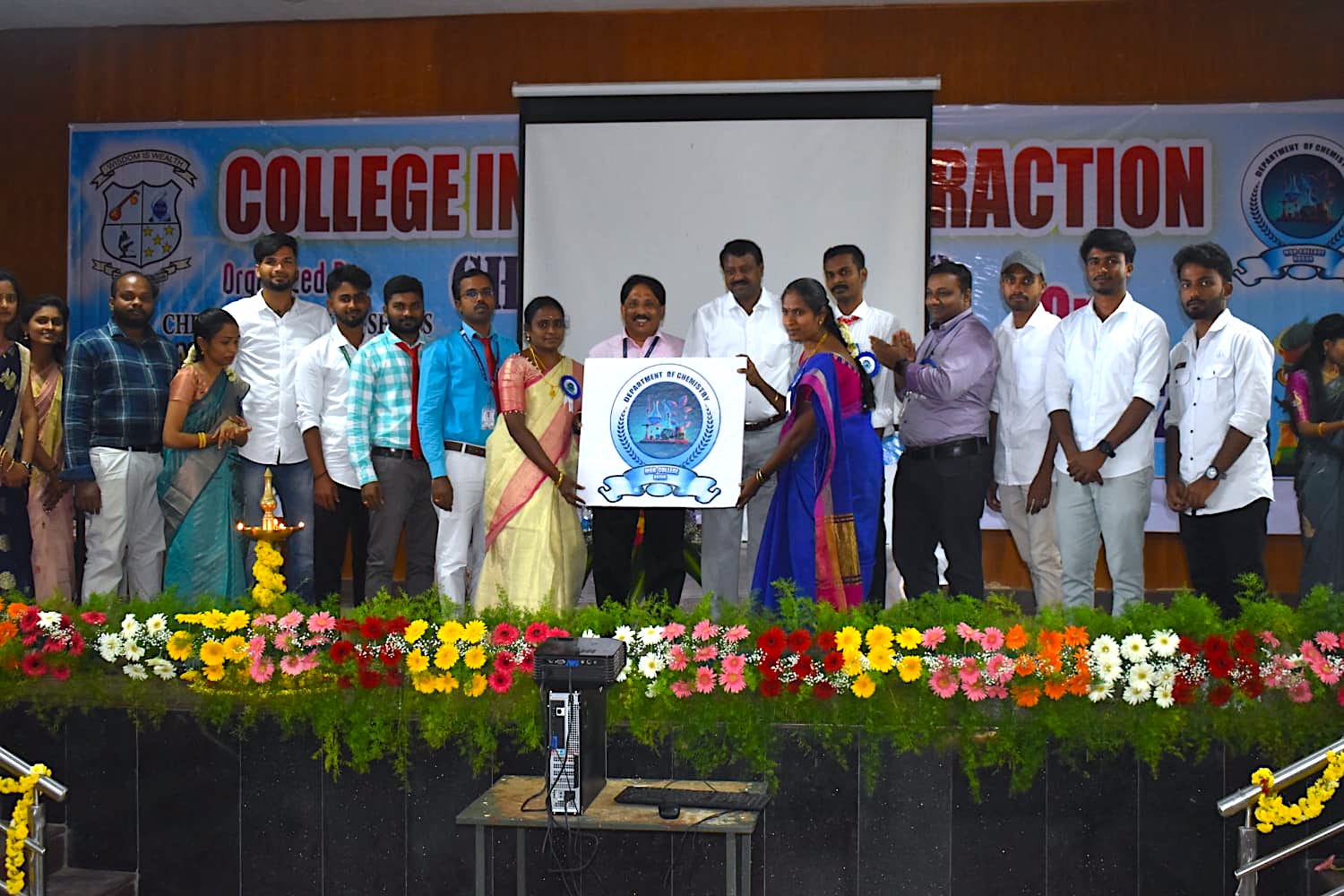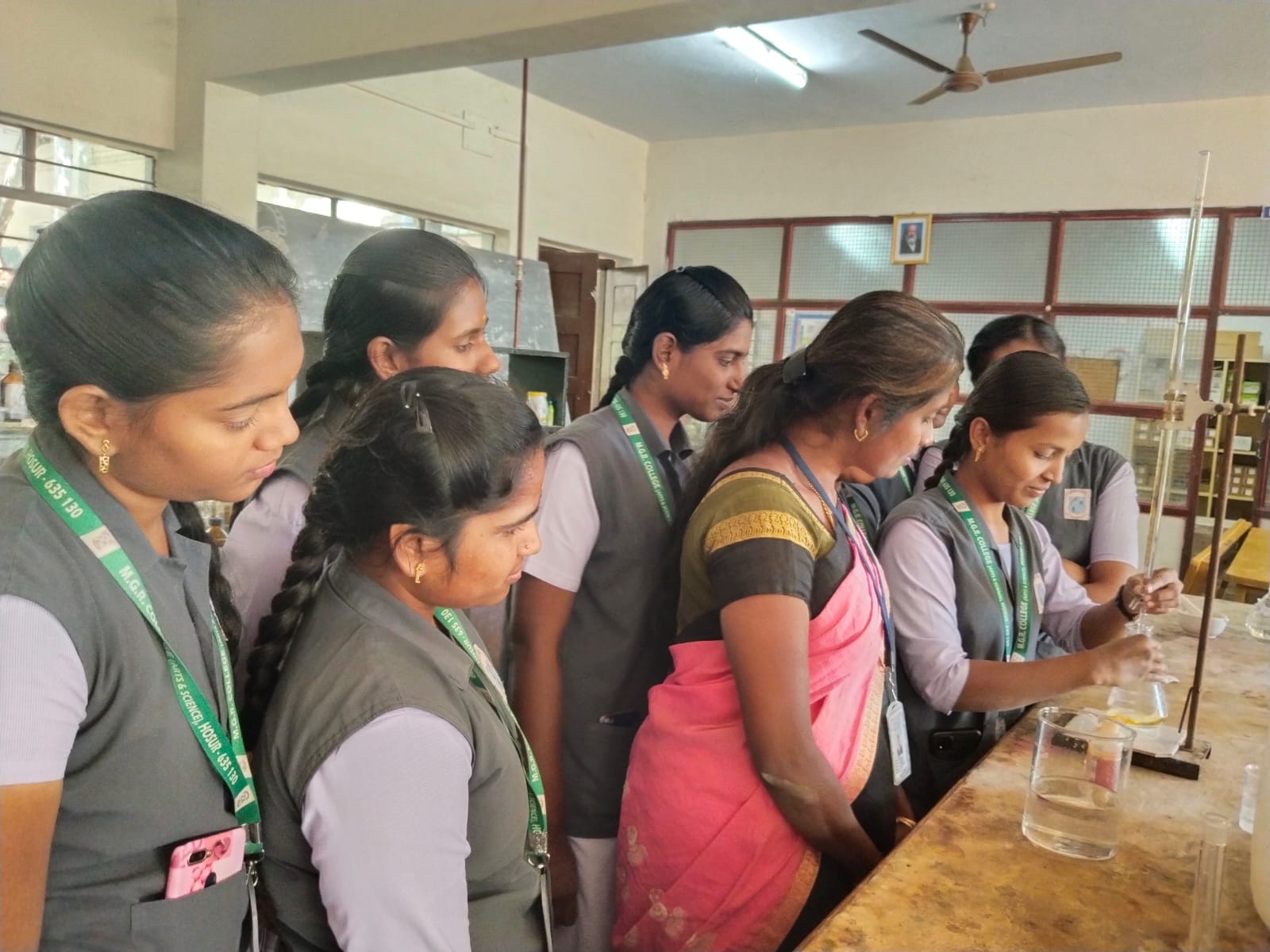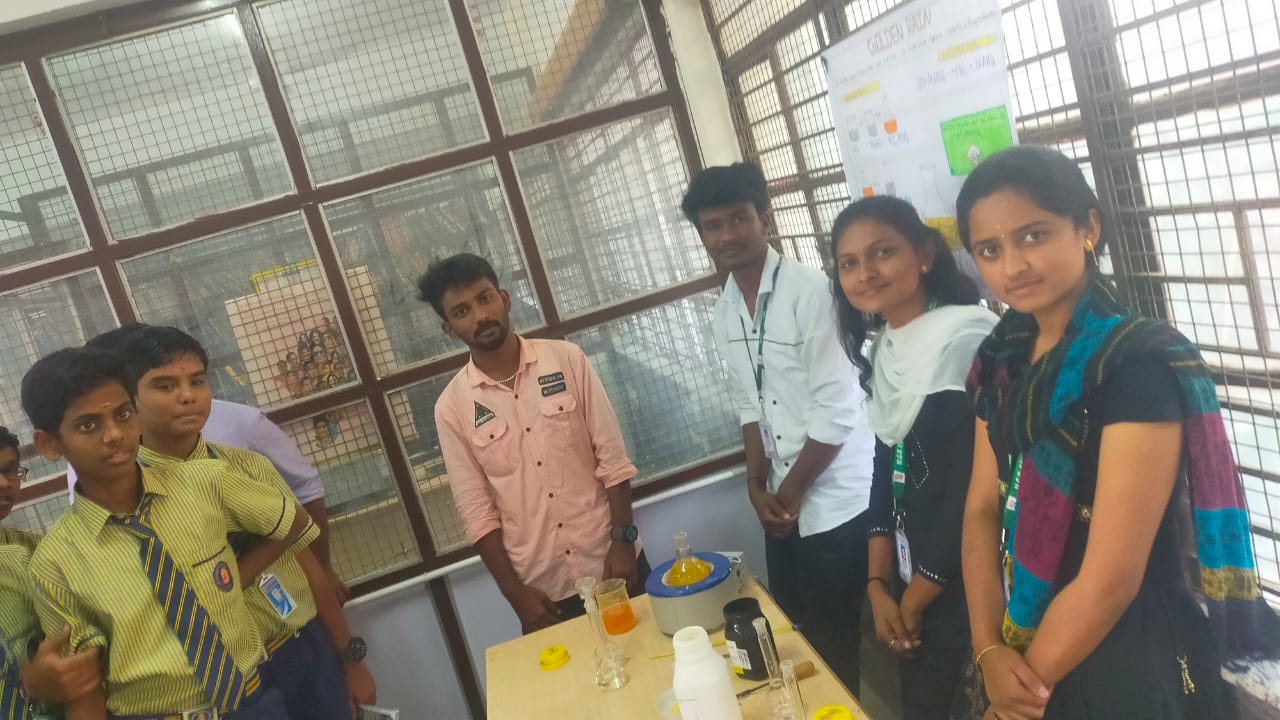B.Sc [Chemistry]
B.Sc. Chemistry teaches the study of matter’s composition and change. It’s vital in energy, healthcare, materials for electronics, and environmental protection. The program covers Inorganic, Organic, and Physical Chemistry, with specialized courses like Pharmaceutical Chemistry, Spectroscopy, and Nanoscience.
It fosters critical thinking through hands-on labs, projects, and internships. Graduates can explain chemistry concepts, solve real-world problems, and conduct research. They’re equipped for careers in teaching, industry, or government labs. Options to branch into Biochemistry or Forensic Science exist, with job prospects in energy, pharmaceuticals, food, and cosmetics industries, promoting both teamwork and entrepreneurship.
- Course Duration : 3 Years/ Full time
- Sanctioned Intake : 40 Students
Overview
Established in 2008, the Department of Chemistry is a cornerstone of the college’s commitment to providing quality education in the sciences. With eight dedicated faculty members holding M.Phil and Ph.D. degrees, the department offers comprehensive undergraduate (UG) and postgraduate (PG) courses in Chemical Science. Students undergo continuous assessment through class tests, seminars, assignments, and mid and end-semester examinations.
Equipped with state-of-the-art laboratories stocked with essential chemicals, reagents, glassware, and instruments, students gain hands-on experience in conducting experiments. The department emphasizes individual attention, fostering character-building, personality development, and academic and research excellence.
Supported by a well-stocked central library, both faculty and students have access to a plethora of resources. The department actively engages in various celebrations, national and international invited lecture series, and industry interactions through its association, Chemspark. This collective enthusiasm has resulted in producing numerous accomplished chemists.
The Department of Chemistry takes pride in its vibrant academic environment, fostering various departmental celebrations, national and international invited lecture series, and industry interactions through the Chemspark departmental association. These initiatives provide students with exposure to cutting-edge research and industry trends, enriching their learning experience and preparing them for future challenges.
This active engagement with academia and industry not only enhances the educational experience but also cultivates a spirit of innovation and collaboration among students and faculty members. It underscores the department’s dedication to academic excellence and its role in shaping the future of chemistry.
Program Learning Outcomes
Upon completing the B.Sc. Chemistry program, students will acquire a deep understanding of fundamental principles and theories, mastering laboratory techniques and critical analysis. They will adeptly apply theoretical knowledge to practical scenarios, effectively communicating findings. Possessing strong problem-solving abilities, they will tackle complex issues, interpreting data and proposing innovative solutions. Through research endeavors, they will formulate inquiries, conduct studies, and collaboratively present outcomes. Furthermore, they will foster self-directed learning, managing their educational journey, reflecting on experiences, and continually advancing skills through ongoing development. Overall, graduates will emerge as adept chemists, poised to contribute to the field’s advancement with lifelong learning and professional growth.
Career Opportunities
After completing the degree, graduates have a wide array of career opportunities across various industries. Some common career paths include:
- Research Scientist:
Conducts experiments, analyzes data, and publishes findings in academic or industrial settings, contributing to scientific knowledge and innovation. - Chemical Engineer:
Applies chemical principles to design, develop, and optimize processes for manufacturing chemicals, pharmaceuticals, fuels, and other products. - Quality Control Chemist:
Ensures products meet regulatory standards and specifications by performing tests and inspections in industries like pharmaceuticals, food, and manufacturing. - Analytical Chemist:
Utilizes various techniques to identify and quantify chemical compounds in samples, crucial for industries such as pharmaceuticals, environmental analysis, and forensic science. - Environmental Chemist:
Studies the impact of chemicals on ecosystems, monitors pollution levels, and develops solutions to mitigate environmental damage. - Pharmaceutical Scientist:
Researches and develops new drugs, formulates medications, and ensures their safety and efficacy for treating diseases. - Forensic Scientist:
Applies chemical analysis techniques to analyze evidence in criminal investigations, aiding law enforcement in solving crimes. - Materials Scientist:
Investigates the properties and applications of materials, developing new materials for use in industries like electronics, aerospace, and construction. - Educator/Professor:
Teaches chemistry at schools, colleges, or universities, imparting knowledge and fostering the next generation of scientists. - Consultant:
Provides expertise and advice to industries, government agencies, or research institutions on chemical-related matters, offering solutions to technical challenges and regulatory compliance.
Research and Development
Research and development are essential components of our academic curriculum. We strive to foster a vibrant research culture within the college by promoting exploration in emerging and challenging scientific domains. Students are encouraged to engage in research projects focusing on cutting-edge areas of science. The institute provides full support to students, faculty, and staff to facilitate their research and development endeavors.
Additionally, we actively encourage participation in national and international invited lecture series, and industry interactions through its association, Chemspark. and training programs organized by esteemed institutes, providing opportunities for students and faculty members to enhance their knowledge and network within the scientific community.
Achievements of the Department
- Global Warming Awareness Campaign:
Organized workshops, seminars, and educational programs to inform the community about the causes, effects, and solutions to global warming. Collaborated with local environmental groups and authorities to promote sustainable practices and reduce carbon emissions. - Plastic-Free Environment Initiative:
Conducted campaigns to raise awareness about the harmful effects of plastic pollution on the environment and wildlife. Encouraged the use of reusable bags, bottles, and containers, and advocate for alternatives to single-use plastics. - Organic Farming Awareness Program:
Educated individuals about the benefits of organic farming, including reduced chemical exposure, soil health improvement, and biodiversity preservation. Offered workshops on organic gardening techniques and support local farmers who practice sustainable agriculture. - Promotion of Natural Medicine:
Hosted workshops and seminars to highlight the advantages of natural remedies and holistic approaches to health. Provided information on herbal medicine, acupuncture, and traditional healing practices as alternatives to pharmaceutical drugs. - Medicinal Plantation on Campus:
Initiated a campus-wide project to plant medicinal herbs and plants, creating a green space that promotes health and wellness. Engaged students and faculty in caring for the garden and organizing educational events about the medicinal properties of the plants. - Azolla Cultivation Campaign:
Raised awareness about the benefits of Azolla, a nitrogen-fixing aquatic plant, for sustainable agriculture and water purification. Encouraged communities to cultivate Azolla in ponds and water bodies to improve soil fertility and reduce chemical fertilizer use. - Ink Pen Advocacy Initiative:
Educated students and the community about the environmental impact of disposable plastic ballpoint pens. Promoted the use of refillable ink pens made from sustainable materials, reducing plastic waste and promoting eco-friendly writing utensils.
Why choose Chemistry @ M.G.R College?
1. Top Infrastructure with all necessary equipments
2. Active Faculty Engagement
3. Well Educated, Experienced & Supportive Faculties
4. Proven academic excellence in the department
5. Students have the chance to network with peers, alumni, and industry professionals through seminars, workshops, and guest lectures organized by the college.
6. Centralized Library with Adequate books
7. Alongside academic excellence, the college emphasizes holistic development, encouraging students to participate in extracurricular activities, sports, and community service initiatives.
8. Practical Focus in Curriculum
9. All in One Campus (Food Court, Indoor & Outdoor Games)
10. Eminent Guest Lectures
11. Separate Hostel Facilities for Male and Female Students











